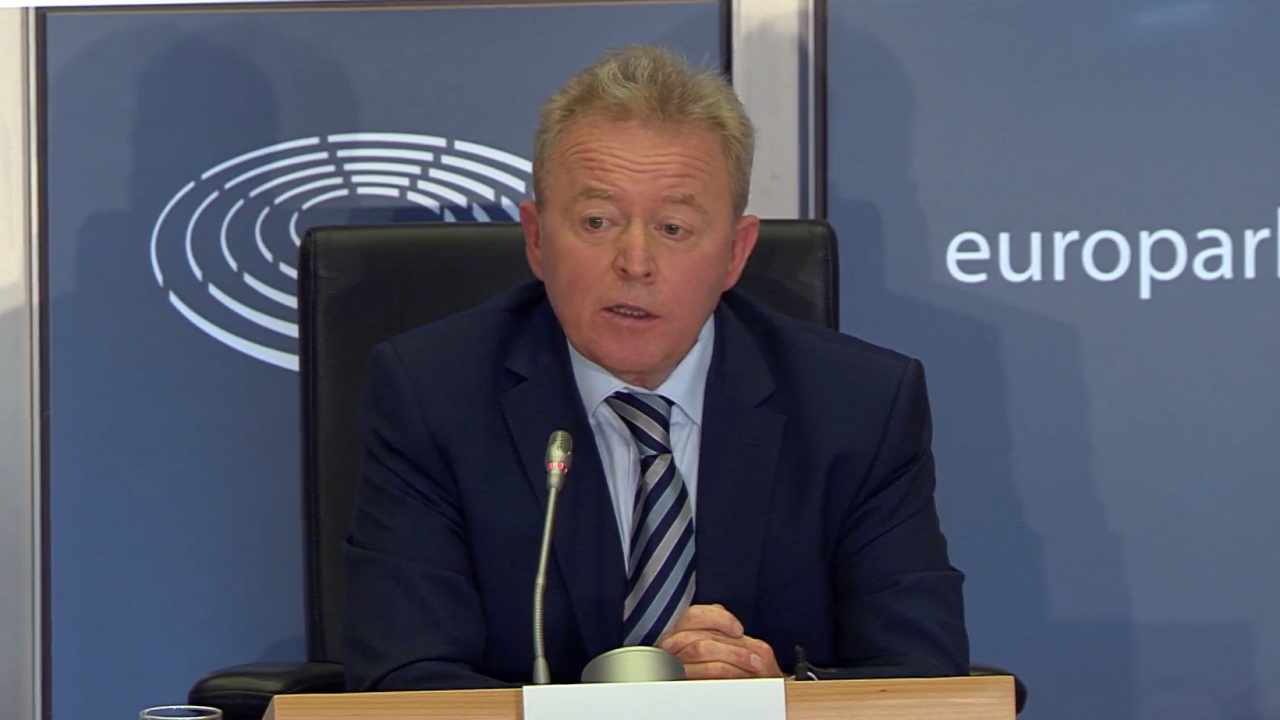The European Commission has said that the trade tariff rate quota in the Mercosur deal should protect Irish beef farmers from an expected rise in imports to the EU in the coming years.
The comments come as the commission earlier this week (Tuesday, January 26) published a new study which says that the EU trade agenda is set to have an overall positive impact on the EU economy and the agri-food sector.
The study also confirms that the EU’s approach to grant a limited amount of lower duty imports (through tariff rate quotas) is the best approach in terms of protecting specific vulnerable agri-food sectors, such as Irish beef exports, in the EU.
EU agri-food exports to the 12 Free Trade Agreement (FTA) partners are set to increase by 25% (conservative scenario) and by 29% (ambitious scenario), while imports increase by 10% (conservative) and by 13% (ambitious).
Brexit impact
At a press conference attended by AgriLand, executive vice president of the European Commission, Valdis Dombrovskis said: “[The] EU/UK trade deal offers no tariffs, no quota access to each other’s market from that point of view. We maintain that level of openness for trade including for [the] agri-food sector.
“However, given the fact that the UK has left the single market and has left the customs union, new additional formalities apply including customs procedures and sanitary [and] phytosanitary [SPS] controls. This is the inevitable consequence of [the] UK leaving the single market and customs union and so businesses need to adjust to those additional formalities but no tariff, no quota access to the market is reserved.”
As regards [the] beef sector, EU trade balance in beef is positive by some 610,000t and according to the results of the study, this positive balance will be maintained.
“So from that point of view, it’s a question on mitigating risks of certain trade agreements and that’s why we are successfully deploying the tariff rate quotas (TRQ) as an instrument which prevents or protects European farmers from [a] sudden surge of imports because the amounts on lower tariffs are strictly limited.”
Agriculture commissioner
The European Commissioner for Agriculture Janusz Wojciechowski told the press conference that the commission is aware that Ireland is in a special situation in terms of exports.
“Of course we know the special situation of Ireland, because Ireland is a big exporter of beef; almost 95% of beef is exported, but also Ireland is big exporter of dairy products,” the commissioner said.
“Production of milk [in Ireland] is the highest in the European Union per capita. The balance of the [Free Trade] agreements is very much positive for the dairy sector but of course we understand the specific situation.
We have the positive balance in the beef trade but the agreements, especially Mercosur – it is the reason that we will have 100,000t more exports but 300,000t more imports.
He added that the commission will monitor the situation and the impact of the situation on various sectors and in member states and if the situation proves difficult, measures will be implemented.
“Then we will use all possible instruments, all possible measures in the Common Agricultural Policy (CAP), but I’m optimistic because [of] the Farm to Fork strategy,” Commissioner Wojciechowski said.
“The strategy promoting European food production which has the high standards, will improve the standards, animal welfare standards and supply chain supporting the farmers.
We expect there will be more space for Irish beef and for the other produce of other member states which are beef exporters – there will be more space in the European market for your products.
“The tariff quota for Mercosur is 99,000t but it is not obligatory. Imports should be profitable for the exporters who imported these products. If we support effectively, like a short supply chain, probably we will reduce the pressure for imports and this is the answer for the Irish farmers, for the Polish farmers, for the other farmers who are big meat producers,” he concluded.
